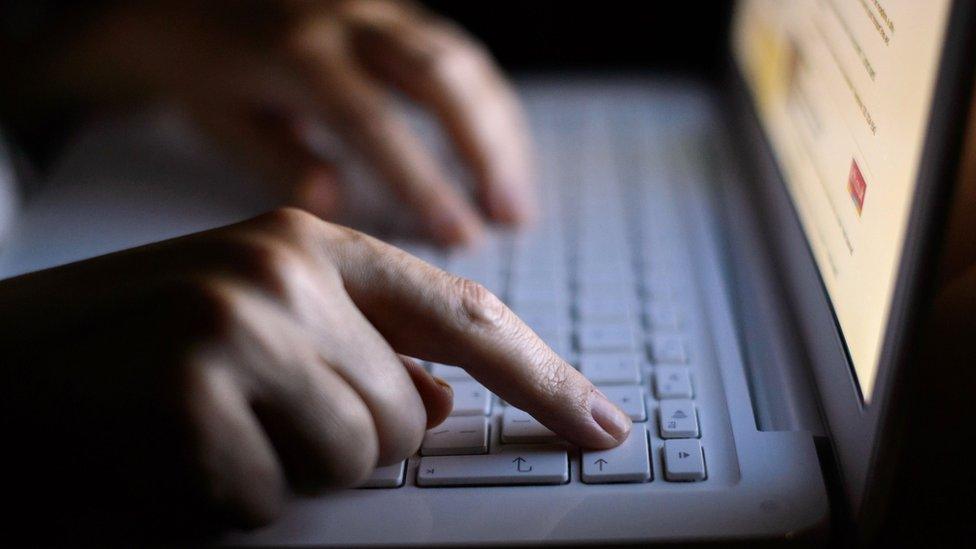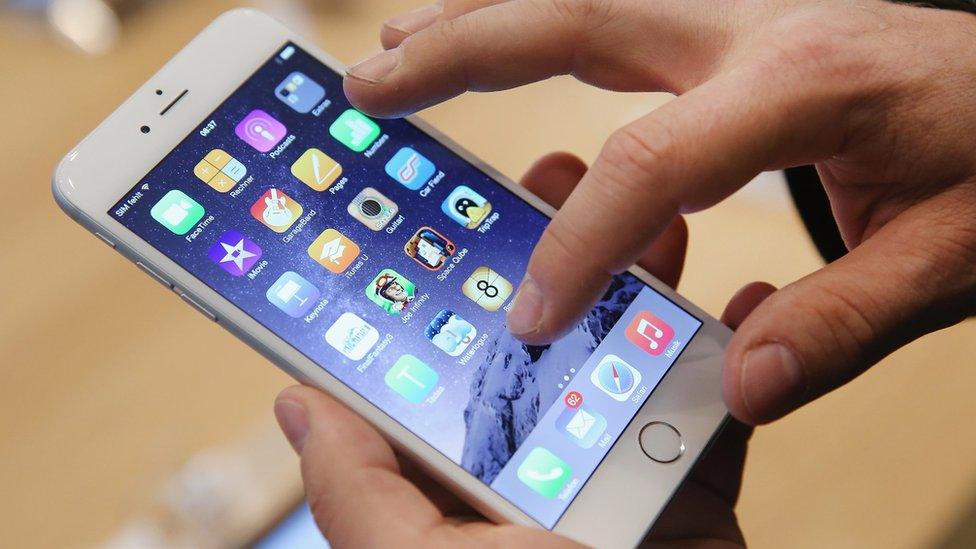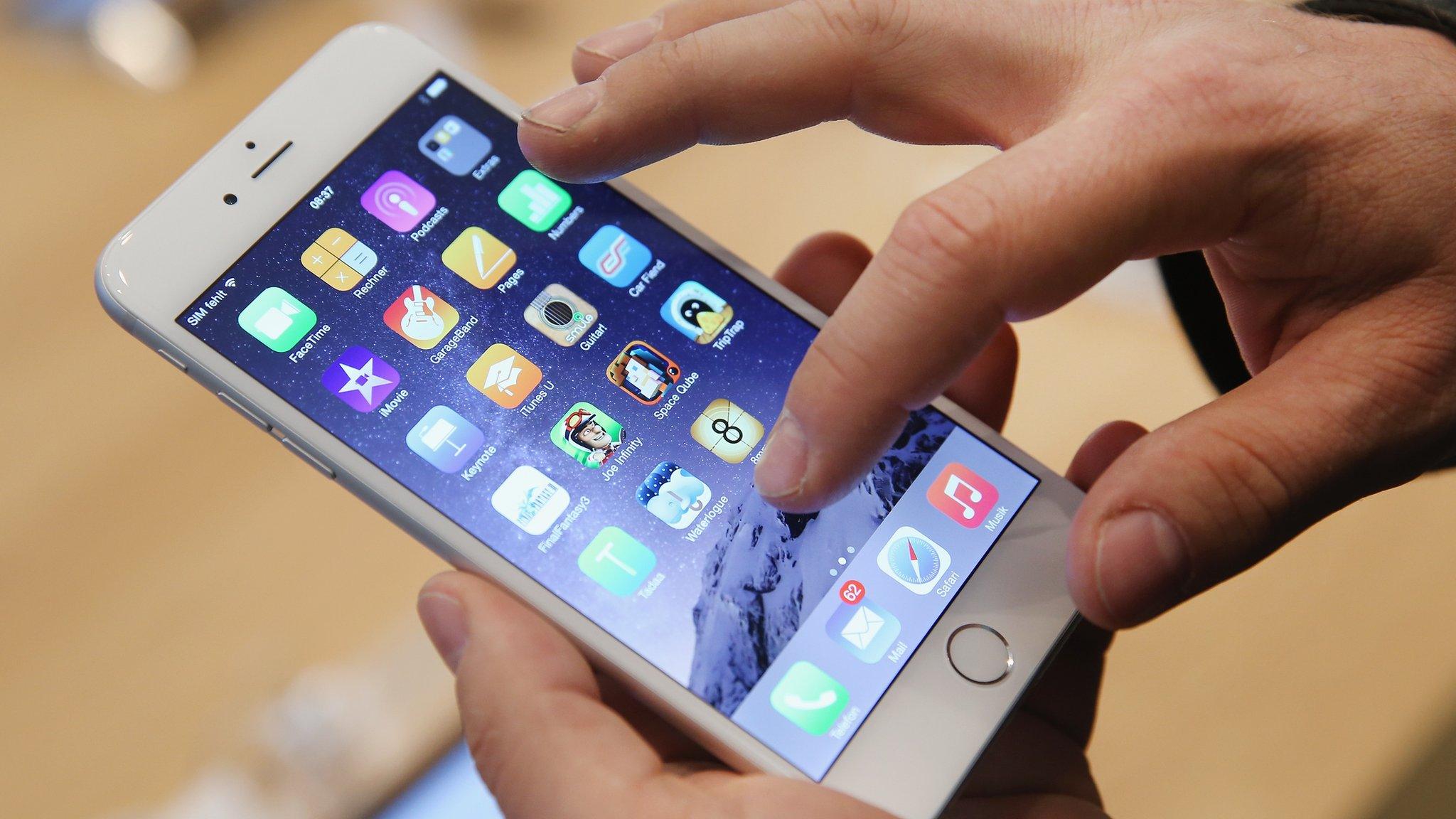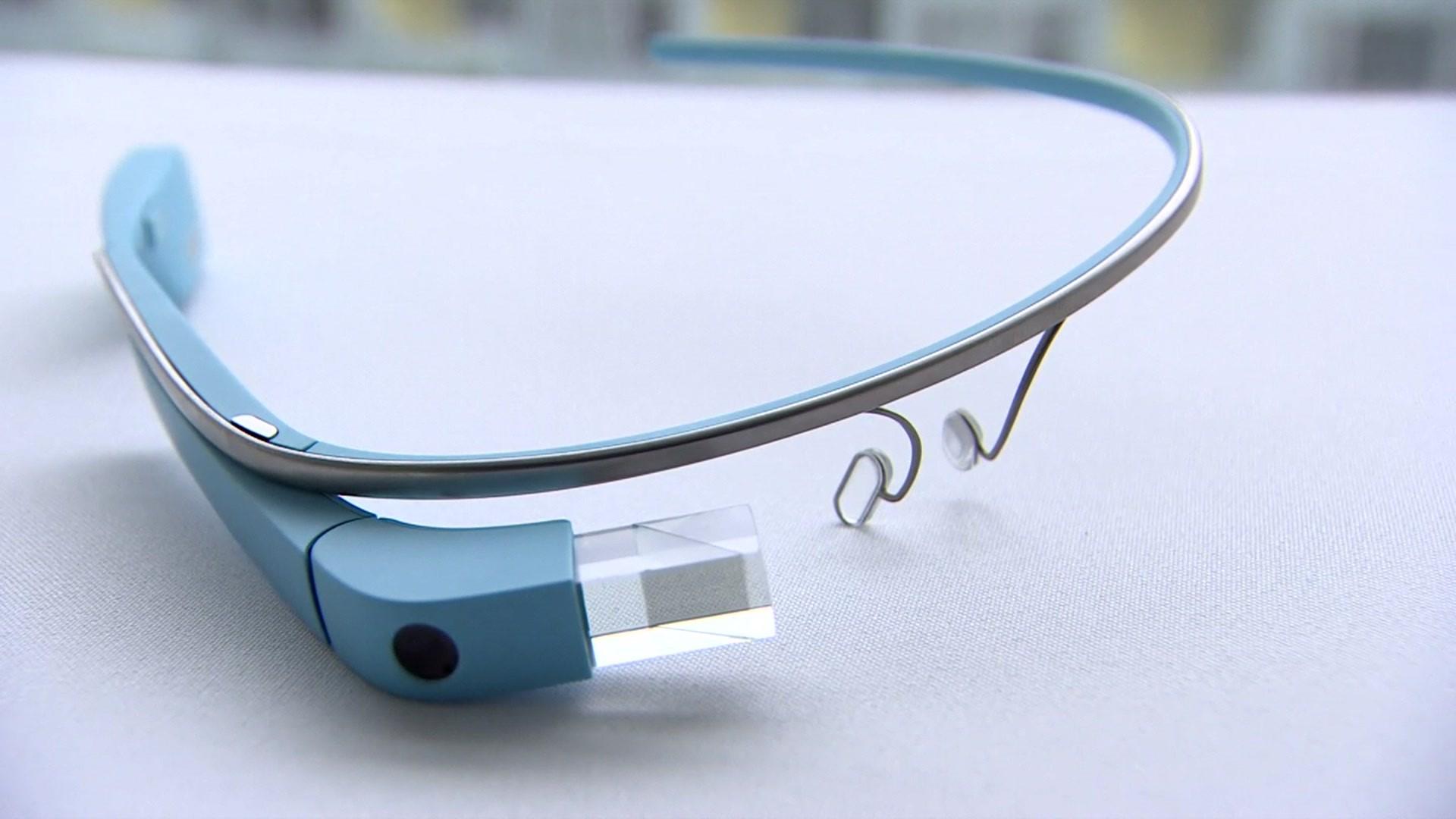Some see 'physiological changes' after using internet
- Published

Some people spending excessive time on the internet can show physiological changes similar to drug withdrawal, researchers in Swansea and Milan found.
Both heart rate and blood pressure increased in those who admitted extended time online - along with reported anxiety levels.
There was no such changes for those with no internet-usage problems.
Scientists said it suggested internet addiction is a real physical condition for some people.
The results of the study, which involved 144 participants aged 18 to 33, are published in the journal PLOS ONE, external.
Study participants had their heart rate and blood pressure measured before and after a brief internet session.
Their anxiety and self-reported internet-addiction were also assessed.
The results showed increases in physiological arousal on ending the internet session for those with problematically-high internet usage.

It follows a study by the two universities in 2013 which showed internet addicts can suffer a form of cold turkey when they stop using the web.
Prof Phil Reed, of Swansea University, said: "We have known for some time that people who are over-dependent on digital devices report feelings of anxiety when they are stopped from using them, but now we can see that these psychological effects are accompanied by actual physiological changes."
Prof Reed, who led the study, said there was an average 3-4% increase in heart rate and blood pressure, and in some cases double that figure, immediately on ending internet use, compared with before use, for those with digital-behaviour problems.
'Likely addiction'
Although this increase is not enough to be life-threatening, the study said, such changes can be associated with feelings of anxiety, and with alterations to the hormonal system that can reduce immune responses.
The study also suggested these physiological changes and accompanying increases in anxiety indicate a state like withdrawal seen for many "sedative" drugs, such as alcohol, cannabis, and heroin.
Prof Roberto Truzoli, of Milan University, a co-author of the study, said: "Whether problematic internet use turns out to be an addiction - involving physiological and psychological withdrawal effects - or whether compulsions are involved that do not necessitate such withdrawal effects - is yet to be seen, but these results seem to show that, for some people, it is likely to be an addiction."
- Published24 December 2016

- Published4 August 2016

- Published15 October 2014

- Published15 October 2014

- Published4 August 2014

- Published19 June 2013
